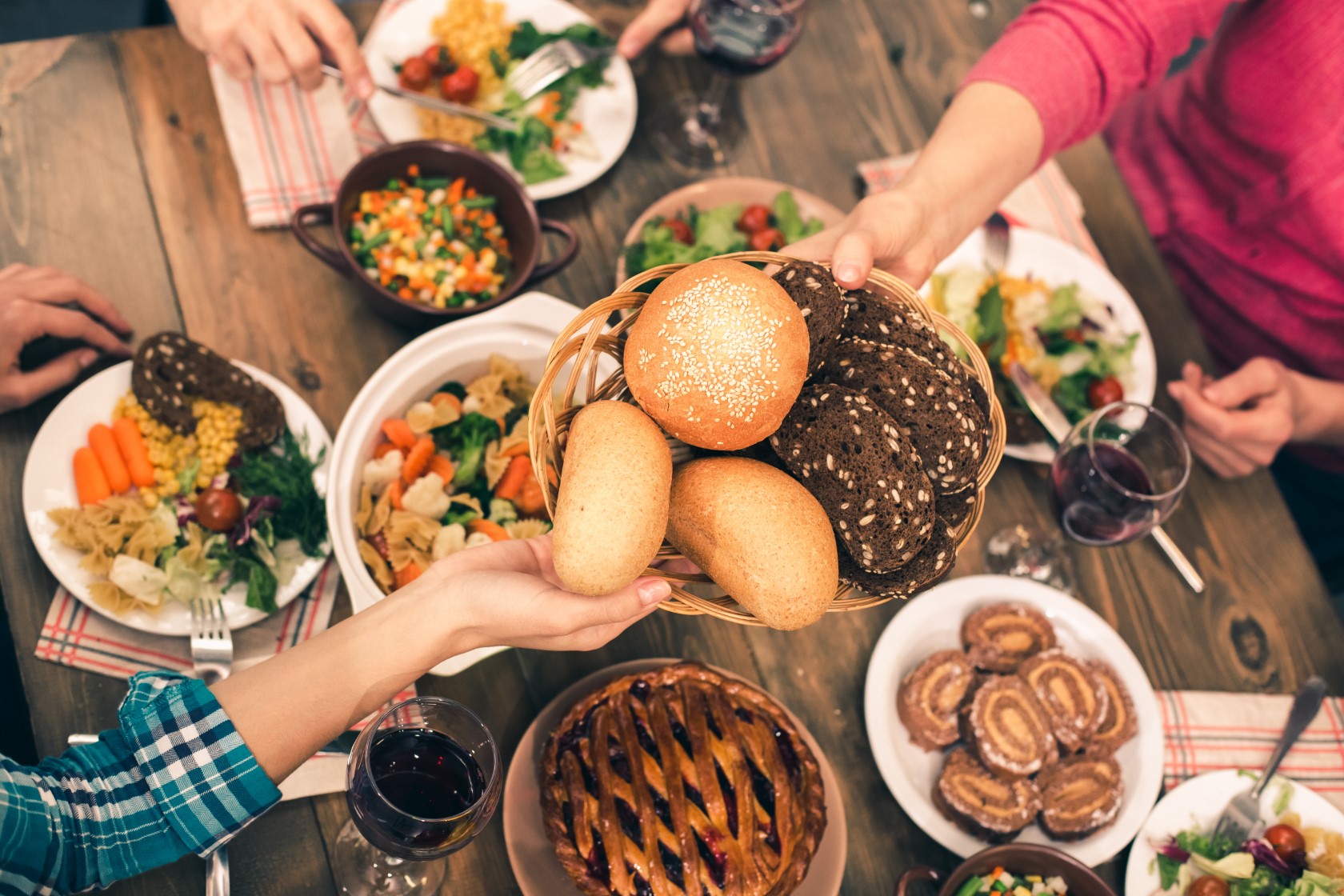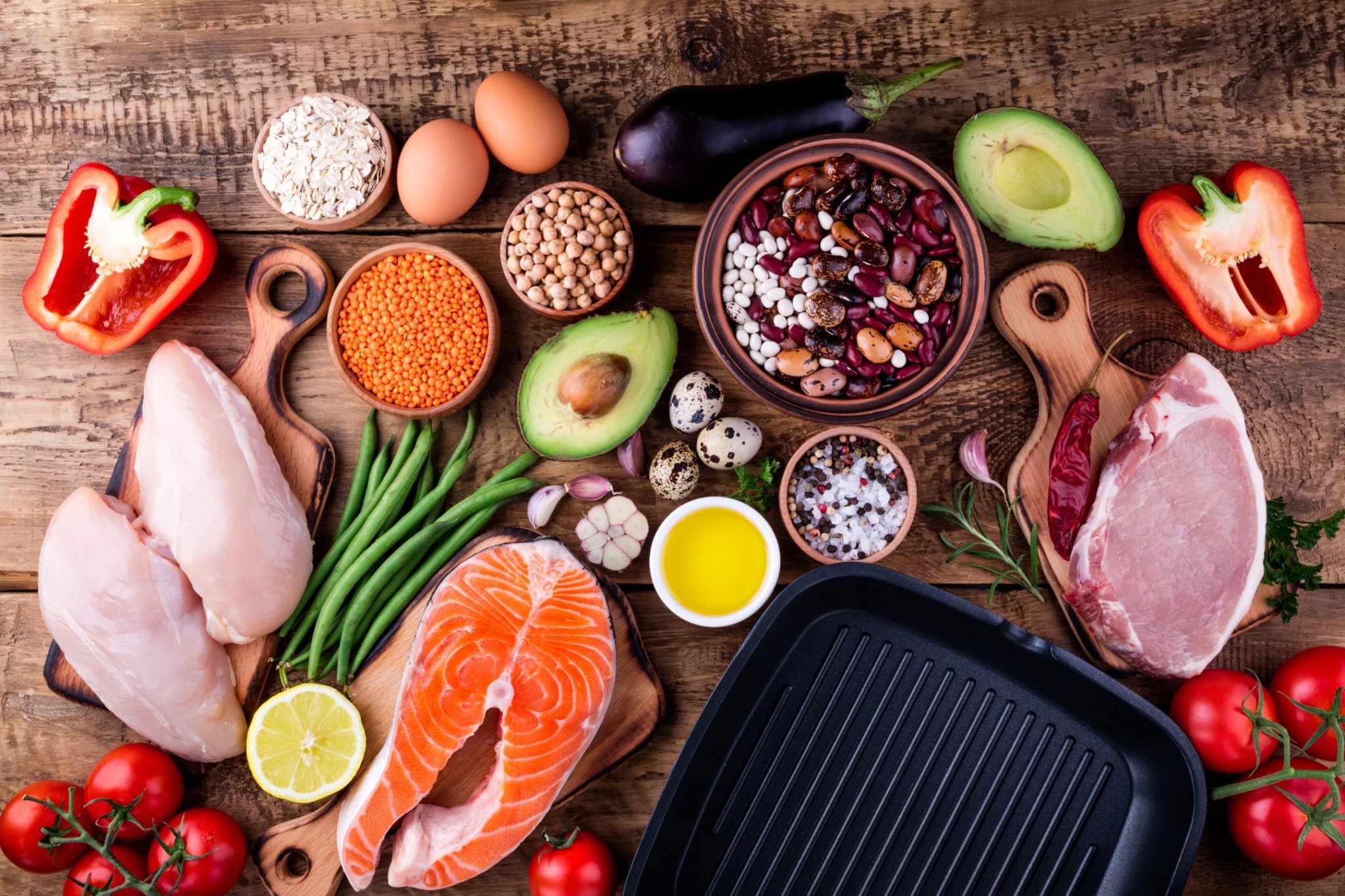Get your own PDF copy of these 9 carb-smart rules for PCOS to help you keep building a healthier, happier PCOS-friendly lifestyle.
First the bad news. I’m not going to advocate a carb free-for-all (sorry ladies!). I’m a proponent of “carb control” for the majority of my PCOS patients. After all, we know that insulin resistance is often at the heart of PCOS.
If the thought of eating pasta, bread, cereal or even fruit makes you break out into a sweat, you aren’t alone. The “carbs are bad” mentality is deeply ingrained into the minds of women with PCOS. As a nutritionist specializing in PCOS for over 15 years, I’ve counseled thousands of women with PCOS and see this carb phobia daily. I want to help clear up some carb confusion and explain why very low carb diets are not needed and may be even deleterious to the health of women with PCOS.
A quick review:
Insulin is secreted mainly in response to eating carbs in attempt to bring blood sugar levels back down to normal. The cells of women with PCOS tend to be less sensitive to the insulin. Therefore, more insulin has to be secreted in order to keep the blood sugar in a normal range. High levels of insulin can worsen PCOS symptoms and increase other health risks including heart disease and diabetes. But keep in mind that not all carbs cause insulin levels to spike. And let’s not forget, there is more to PCOS than insulin resistance – a lot more!
PCOS is Not Just About Insulin Resistance
While it usually plays a key role, insulin resistance is only part of the picture with PCOS. Low-grade inflammation is also associated with PCOS. While it tends to occur more in women who are overweight or obese, even lean women can have increased inflammatory markers. There is also an increased incidence of mood disorders, eating disorders, an increased risk of type 2 diabetes and heart disease, and reports of low energy levels. As if that’s not enough, recent research is showing that women with PCOS may have altered gut bacteria. And your gut microbiome has been shown to play a role in body weight as well as the risk of other diseases. Very low carb diets (especially if not done properly) can worsen all of these conditions.
PCOS and Carbs
Insulin levels: While it’s true that carbs have the biggest effect on insulin levels, not all carbs cause insulin levels to spike. It depends on what type of carbs you eat, how much, what you eat along with the carb, as well as your individual body composition. For those of you avoiding carbs and loading up on protein – did you know that some protein-rich foods including red meat and dairy also cause insulin to be secreted? This is something that many women don’t realize!
Inflammation: As previously mentioned, many women with PCOS have low-grade inflammation. Diet plays a major role in promoting or decreasing inflammation. Carbohydrate-containing foods such as whole grains, legumes, and fruits, along with fatty fish, olive oil, nuts, and seeds are anti-inflammatory. On the other hand, foods high in saturated fat (i.e. fatty red meat, butter, lunch meats), as well as processed foods and trans fats, tend to promote inflammation.
Risk of heart disease: Women with PCOS have an increased risk of heart disease. Studies have shown that people who eat 3 servings a day of whole grains have reduced their risk of heart disease by 25-36%, and reduced risk of stroke by 37%.
Mood: PCOS has been linked to an increase in mood disorders. Studies have found that low carb diets may negatively affect dieters’ moods. This may be due to feelings of deprivation on a low carb diet. However, another possible explanation is that low carbohydrate diets affect brain levels of the neurotransmitter serotonin, which is involved in regulating mood.
Eating disorders: There is also an increased incidence of eating disorders in PCOS. Feeling that a major food group (including many of your favorite foods) is “forbidden” can only exacerbate this risk.
Gut health: The gut microbiome is a hot research area. Studies show that changes in gut microbiota trigger the pathogenic mechanisms to promote obesity, type 2 diabetes, and metabolic syndrome – and possibly, PCOS. Along with your stress levels and exercise habits, your diet can play an important role in maintaining a healthy gut microbiome. The healthiest diet for your gut includes a variety of plant foods, especially leafy greens, legumes (beans, peas, lentils), and whole grains. These fiber-containing foods promote the growth of good bacteria.
If you’re interested in giving your gut microbiome a boost, try including probiotic-rich fermented veggies like kimchi. Limit intake of meat and other high fat-animal based foods and avoid artificial sweeteners, trans fats, and highly processed foods as they may have a negative effect on gut health.
Energy levels: Many women with PCOS complain of low energy levels. Carbs are the major source of fuel for your muscles and brain. Following a very low carb diet can make you feel sluggish and too fatigued to get a good workout. While it’s true that you can get energy from protein and fat, carbs are the body’s preferred source of fuel.
The Bottom Line
There is no “one size fits all” eating plan for women with PCOS.
Everyone has a different metabolism and gut microbiome which impacts how you metabolize foods. Some women feel great physically and mentally on a very low carb diet, whereas other women feel lethargic and deprived. Listen to your body and find what works best for you.
While some portion control should be involved, you do not have to strictly limit all carbs. Here are some guidelines to help sort through this carb confusion.
- Stick to healthier low glycemic carbs like veggies, legumes, whole grains and many fruits. These carbs tend to cause a slower rise in blood sugar and insulin. In addition, these foods have more vitamins, minerals, and fiber that can reduce the risk of many diseases as well as improve gut health. Avoid (or strictly limit) foods high in added sugar, as they are inflammatory and cause blood sugar and insulin spikes.
- Pay attention to how various carbs make you feel. If eating 1 cup of whole wheat pasta only makes you want more, find another carb that doesn’t set you off. A better choice might be chickpeas in a salad or a small baked sweet potato.
- Keep portions of carbs moderate and space them out during the day. Moderate amounts of carbs spaced across your day will have less of an impact than saving them all up for one meal.
- Eating fiber, protein, and fat along with carbs will slow the rise and fall of blood sugar, which will help promote more stable blood sugar and insulin levels. So if you want a slice of whole grain toast, you are better off adding some almond butter to it versus eating it alone.
- Don’t eat excess animal protein. While protein has little, if any, effect on blood sugar, certain protein rich foods cause a rise of insulin. Red meat, poultry, and yogurt have more of an effect on insulin levels than fish and eggs.
- Fill up on non-starchy vegetables. Not only do they have minimal calories and carbs, but they are rich in fiber, provide satiety value, help decrease the risk of heart disease, and improve gut health. Check out one my post on 20 Ways to Increase Your Vegetable Intakefor recommendations.
- If you do choose to follow a very low carb diet, make sure you do it in a healthy manner.Eat animal protein in moderation, include seeds, nuts and nut butter, healthy fats like olive oil and avocado, and tons of non-starchy vegetables (with some fermented veggies thrown in). I’d still suggest 2 servings of a carb-rich food a day like ½ cup legumes and ¾ cup berries.
- Eat your carbs earlier in the day. Studies on circadian rhythms show that carbs eaten earlier in the day have less of an effect on the blood sugar and insulin as compared to those eaten later in the day. That being said, don’t feel this is when you have to eat them. There is nothing wrong with having a moderate amount of carbs at dinner.
- If you do end up overindulging in carbs like pizza or ice cream, let it go! Don’t beat yourself up. No “permanent damage” was done. It’s normal to want to give in to cravings on occasion. The worst thing you can do is to beat yourself up. This will only create a vicious cycle. Let it go and move on.
Get your own PDF copy of these 9 carb-smart rules for PCOS to help you keep building a healthier, happier PCOS-friendly lifestyle.







